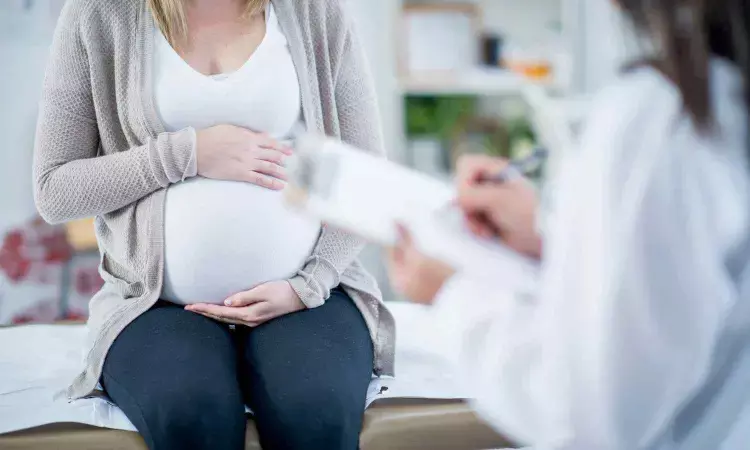- Home
- Medical news & Guidelines
- Anesthesiology
- Cardiology and CTVS
- Critical Care
- Dentistry
- Dermatology
- Diabetes and Endocrinology
- ENT
- Gastroenterology
- Medicine
- Nephrology
- Neurology
- Obstretics-Gynaecology
- Oncology
- Ophthalmology
- Orthopaedics
- Pediatrics-Neonatology
- Psychiatry
- Pulmonology
- Radiology
- Surgery
- Urology
- Laboratory Medicine
- Diet
- Nursing
- Paramedical
- Physiotherapy
- Health news
- Fact Check
- Bone Health Fact Check
- Brain Health Fact Check
- Cancer Related Fact Check
- Child Care Fact Check
- Dental and oral health fact check
- Diabetes and metabolic health fact check
- Diet and Nutrition Fact Check
- Eye and ENT Care Fact Check
- Fitness fact check
- Gut health fact check
- Heart health fact check
- Kidney health fact check
- Medical education fact check
- Men's health fact check
- Respiratory fact check
- Skin and hair care fact check
- Vaccine and Immunization fact check
- Women's health fact check
- AYUSH
- State News
- Andaman and Nicobar Islands
- Andhra Pradesh
- Arunachal Pradesh
- Assam
- Bihar
- Chandigarh
- Chattisgarh
- Dadra and Nagar Haveli
- Daman and Diu
- Delhi
- Goa
- Gujarat
- Haryana
- Himachal Pradesh
- Jammu & Kashmir
- Jharkhand
- Karnataka
- Kerala
- Ladakh
- Lakshadweep
- Madhya Pradesh
- Maharashtra
- Manipur
- Meghalaya
- Mizoram
- Nagaland
- Odisha
- Puducherry
- Punjab
- Rajasthan
- Sikkim
- Tamil Nadu
- Telangana
- Tripura
- Uttar Pradesh
- Uttrakhand
- West Bengal
- Medical Education
- Industry
Gestational hypertension, preeclampsia, and eclampsia increases risk of neurologic conditions, suggests study

A new study published in the Journal of American Medical Association found that in the years after a first pregnancy, there is a markedly increased risk for neurologic conditions like migraine or epilepsy in the mothers with gestational hypertension, preeclampsia, or eclampsia.
It is unknown if the pregnancy issues (preeclampsia, prenatal hypertension, and eclampsia) are linked to a higher chance of developing neurological diseases months or years after giving birth. Therefore, Therese Friis and her colleagues carried out this study to investigate if new-onset headache, migraine, sleep problem, epilepsy, or mental weariness within months to years after giving birth are linked to gestational hypertension, preeclampsia, and eclampsia.
A total of 659,188 primiparous women with singleton pregnancies between 2005 and 2018 were identified through the Swedish Medical Birth Register. The women with a screening of chronic hypertension or a prepregnancy neurological disorder were excluded and the final study population included 648 385 women with the data analyses in 2023.
This register-based cohort study identified exposures in the Swedish Medical Birth Register from 2005 to 2018 and followed up using the National Patient Register, which included diagnoses from specialized inpatient and outpatient care for 42 days after delivery until the first event, emigration, death, or the end of the follow-up period. A composite neurological consequence of headache, migraine, epilepsy, sleep problem, or mental exhaustion was the main result.
The mean age of the 648,385 women in the research at the time of their first pregnancy was 28.5 (SD, 5.0). When compared to women with normotensive pregnancies, women with gestational hypertension (n = 11133), preeclampsia (n = 26797), and eclampsia (n = 625) were significantly more likely to have a new-onset neurological condition.
For pregnant hypertension, the aHR was 1.27; for preeclampsia, it was 1.32; and for eclampsia, it was 1.70. Women with eclampsia were linked to a risk of epilepsy that was more than five times higher when looking at individual outcomes.
Overall, given their elevated risk of cardiovascular disease, guidelines advise women with gestational hypertension and preeclampsia to have follow-up care after giving birth. As this group of women seem to be at risk for neurological problems, caregivers should also be aware of any new or persistent neurological symptoms during these visits.
Source:
Friis, T., Bergman, L., Hesselman, S., Lindström, L., Junus, K., Cluver, C., Escudero, C., & Wikström, A.-K. (2024). Gestational Hypertension, Preeclampsia, and Eclampsia and Future Neurological Disorders. In JAMA Neurology. American Medical Association (AMA). https://doi.org/10.1001/jamaneurol.2024.4426
Neuroscience Masters graduate
Jacinthlyn Sylvia, a Neuroscience Master's graduate from Chennai has worked extensively in deciphering the neurobiology of cognition and motor control in aging. She also has spread-out exposure to Neurosurgery from her Bachelor’s. She is currently involved in active Neuro-Oncology research. She is an upcoming neuroscientist with a fiery passion for writing. Her news cover at Medical Dialogues feature recent discoveries and updates from the healthcare and biomedical research fields. She can be reached at editorial@medicaldialogues.in
Dr Kamal Kant Kohli-MBBS, DTCD- a chest specialist with more than 30 years of practice and a flair for writing clinical articles, Dr Kamal Kant Kohli joined Medical Dialogues as a Chief Editor of Medical News. Besides writing articles, as an editor, he proofreads and verifies all the medical content published on Medical Dialogues including those coming from journals, studies,medical conferences,guidelines etc. Email: drkohli@medicaldialogues.in. Contact no. 011-43720751


